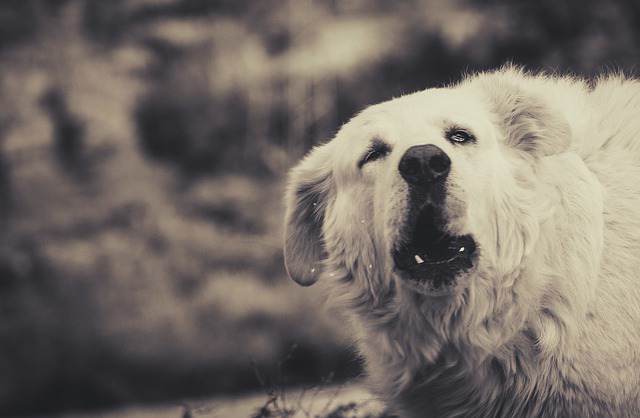Are Bengal Cats Aggressive [11 Aggression Triggers]
![Are Bengal Cats Aggressive [11 Aggression Triggers] Are Bengal Cats Aggressive](https://petcreeks.com/wp-content/uploads/2023/05/Are-Bengal-Cats-Aggressive.jpg)
Are Bengal Cats aggressive? Let’s find out together…
Are you considering getting a Bengal cat but are worried about their temperament?
Bengal cats are known for their wildcat appearance and energetic personalities, but what about their aggression levels?
In this blog post, we dive deep into the question of whether Bengal cats are aggressive and provide you with all the information you need to make an informed decision on whether a Bengal cat is right for you.
So, if you’re curious about Bengal cat aggression, sit tight and keep reading!
Are Bengal Cats Aggressive
Bengal cats can be territorial, which can come across as aggressive, they are active and playful cats that require a lot of attention and stimulation, and if they don’t get it, they can become destructive or aggressive.
However, with proper training, socialization, and attention, Bengal cats can make great companions and are no more prone to aggression than any other cat.
It’s important to note that any cat can be aggressive if they feel threatened or provoked.
So, if you’re considering adopting a Bengal cat, make sure you’re willing to give them the attention and care they need to thrive.
Learn more about how to care for Bengal cats.
Bengal Cat Aggressive Triggers
![Are Bengal Cats Aggressive [11 Aggression Triggers] Bengal Cat Aggressive Triggers](https://petcreeks.com/wp-content/uploads/2023/05/Bengal-Cat-Aggressive-Triggers.jpg)
Here are some common reasons why Bengal cats can become aggressive if not properly taken care of:
This is one of the main reasons why Bengal cats become too aggressive as they age.
You must socialize your Bengal cat with other cats, humans, especially children, and other pets.
During your Bengal cat’s socializing, be sure to visit other cat owners or even dog owners.
Remember to expose your cat to all sources of fear that might cause your cat to become possessive or violent.
A Bengal cat that is not properly socialized will become too territorial, and aggressive, and will attack other cats.
Make sure you socialize your Bengal cat with loud sounds, like the vacuum cleaner, and loud music from the kitten stages.
If a Bengal cat is well-socialized, there will be no need for aggression, and you will also get a good family-friendly cat.
2. Due to illness
Bengal cats become more aggressive needlessly when they are sick.
They can also bite their owners when they are sick, so send your Bengal cat to the vet doctor if you observe any strange behavior.
Bengal cats are affected by a certain illness that has been found to be unique to them and can be treated.
Here are some common health challenges associated with Bengal cats:
- Hypertrophic cardiomyopathy
- Flat-chested kitten syndrome
- Distal neuropathy
- Patellar luxation
- Hip dysplasia
Aside from being sick, a Bengal cat can not be aggressive, because when they are sick they are in pain, which forces them to become aggressive.
3. Due to a traumatic experience
Traumatic experiences might drive your Bengal cat to become violent over time, and it may even desire to flee.
You should also be aware of indications of traumatic experiences in cats.
If you see any of the symptoms, please contact your veterinarian for expert guidance.
Here are some of the things that might cause your Bengal cat to have a traumatic experience:
- Avoiding death at the hands of a predator’s jaws
- Getting away from human traps
- A deadly struggle between a cat and a larger animal
- Injuries caused by falls from great heights
- Disease
- Loved ones’ neglect
- Toxins exposure
- Getting out of a vehicle accident
4. Due to Abuse
Abuse and neglect from a loved one may cause your Bengal cat to become violent.
Bengal cats want warmth and devotion from their owners, and ignoring them may lead to unexpected biting or hostility.
Here are some pointers on what constitutes abuse or neglect:
- Unnecessary yelling at a cat
- Using a cat’s tongue to lick its feces
- Using a cat’s nose to clean its urine
- Locking up a cat in a room for committing a crime
- Thrashing a cat
- Chasing a cat away when the cat is in need of affection
- Allowing your cat to eat leftovers
- Failure to change or clean the litter box on a regular basis
- You should not bathe your cat at all
- Not grooming your cat
- Ignoring your medical needs
5. Due to loneliness
When you confine them in either a crate for an extended period of time, they develop separation anxiety.
This resulted in unneeded aggression and biting or scratching of furnishings.
This is a significant cause of most cats’ needless actions.
Bengal cats like being around their owners and exploring their surroundings.
Consider having a second pet if you are not always accessible.
6. Due to stress
If a cat lives in a very stressful situation, such as a house where humans are fighting or a home with too many cats, that cat may be prone to behave aggressively.
Cats, like humans who grow up in households where there is a lot of verbal and physical aggression or a lot of hidden hostility, frequently act out the dynamics of their human families.
A stressed Bengal cat is always depressed, however, there are many causes of depression in cats you should know.
7. Due to improper training
Training is essential in the lives of all pets, especially the Bengal cat.
The first thing you should do with your Bengal cat is to begin obedience training.
Make sure your Bengal cat has everything he or she needs to be happy, including engaging toys.
Socialization is part of the training you should give a Bengal cat.
Training can help remove all unnecessary behaviors like biting, nipping, etc.
Always start your Bengal cat training from the kitten stages.
8. Due to changes in daily routine
Changes in daily routine are a major reason why most Bengal cats become unnecessarily territorial and aggressive.
Whenever you make changes to your daily routine, this change destabilizes your cat and can cause unnecessary aggression.
9. Due to fear
A scared cat will react by turning sideways and puffing up her tail and hair to make herself appear larger, as seen by an experienced cat carer.
Her ears will flatten backward, her pupils will dilate, and she will hiss.
Approaching a cat in this state risks eliciting an aggressive reaction, not because the cat dislikes you, but because she is in the midst of a panic response.
10. Due to lack of exercise
Bengal cats are very energetic, active, and spirited when you don’t provide enough exercise for your Bengal cat.
It can lead to unnecessary aggressiveness towards other dogs, cats, and even humans, therefore you should provide enough exercise.
Learn more about leaving your Bengal cat alone for too long.
11. Due to frustration
The phrase “redirected aggression” refers to violent acts committed by cats when they are unable to reach the target of their predatory desire.
For example, an indoor cat that notices another cat strolling by or marking his territory in “his” turf may become extremely agitated.
At that moment, anyone unfortunate enough to be around, whether it’s another cat, a dog, or a person, maybe the target of the cat’s hostility.
Frustration is one of the reasons why male cats run away from home for many days.
Learn more about Bengal cat behavior concerns.
Ways to manage aggression in Bengal cats
The owner is responsible for 85% of the reasons why a Bengal cat may exhibit violent behavior.
So, here are some helpful hints for keeping your Bengal cat from being aggressive:
- Early socialization: Proper training with socialization is essential to manage aggression in Bengal cats. Train them to socialize with other pets, humans, and experiences early on.
- Provide outlets for energy: Bengal cats are active and energetic, so provide plenty of playtime and access to toys to help burn off excess energy. This can help reduce the likelihood of destructive or aggressive behavior.
- Litter box management: Keep the litter box clean and in a location where the cat feels secure and comfortable.
- Provide scratching posts: Bengal cats need to scratch to sharpen their claws and mark their territory, so provide plenty of scratching posts and toys to prevent destructive behavior.
- Provide hiding spots: Bengal cats, like many cats, appreciate having a secure and private hiding spot to retreat to when they feel threatened or stressed.
- Keep them stimulated: Provide mental stimulation by hiding treats or playing puzzle games to keep them engaged.
- Medical checkups: Some aggressive behavior may be due to underlying medical conditions, so regular checkups with a veterinarian can help identify and address any issues.
- Positive reinforcement training: Rewarding good behavior reinforces positive behaviors and can help discourage unwanted behavior.
- Seek professional help: If the aggression persists or becomes dangerous, consult a veterinarian or animal behaviorist for professional advice on how to address it.
Learn more about ways to discipline your Bengal cat.
Frequently Asked Questions
Are Bengal cats aggressive?
Overall, Bengal cats are not inherently aggressive. In fact, they are known for being quite affectionate and playful.
However, like any other breed of cat, there are always individuals who may exhibit more aggressive behavior than others.
What might cause a Bengal cat to become aggressive?
There can be several factors that contribute to a Bengal cat exhibiting aggressive behavior, including lack of socialization, fear, territoriality, and trauma.
It’s important to identify the underlying cause of the aggression in order to address it appropriately.
How can I prevent my Bengal cat from becoming aggressive?
There are several steps you can take to prevent aggression in your Bengal cat, including early socialization, providing adequate space and resources, regular exercise and playtime, and using positive reinforcement training techniques.
Can aggressive behavior in Bengal cats be treated?
Yes, if the aggression is caused by an underlying issue such as fear or trauma, it can often be treated with behavior modification training and/or medication.
It’s important to seek the advice and guidance of a veterinarian or animal behaviorist.
Is there a difference between male and female Bengal cats when it comes to aggression?
There is no universal answer to this question as each individual cat has its own personality and temperament.
However, some cat owners and breeders have reported that female Bengal cats tend to be more affectionate and less aggressive than males.
Are Bengal cats good with children and other pets?
Yes, Bengals are generally good with children and other pets when they are properly socialized from a young age.
However, as with any animal, it’s important to supervise interactions and make sure everyone is safe and comfortable.
Learn more about why Bengal cats bite.
Conclusion
In conclusion, Bengal cats are not inherently aggressive or dangerous. Like any other breed, they have their own unique personality traits and tendencies.
While they can be territorial and exhibit destructive behavior, proper training and socialization can help mitigate these issues.
With the right care and attention, Bengal cats can make loving and loyal companions for years to come.

![Why Do Beagles Bark So Much [12 Reasons & Control] Why Do Beagles Bark So Much](https://petcreeks.com/wp-content/uploads/2021/04/puppy-dog-animal-cute-mammal-hound-333750-pxhere.jpg)


![Will My Cat Come Back If I Let Him Outside [Useful Hints] Will My Cat Come Back If I Let Him Outside](https://petcreeks.com/wp-content/uploads/2023/10/pexels-dids-1383812.jpg)

